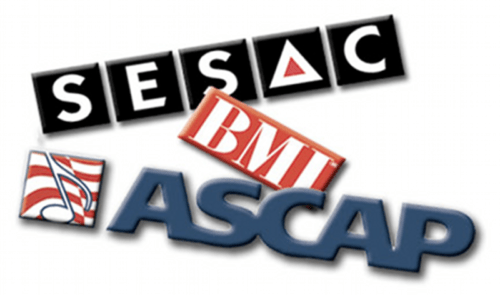Are you hosting live music at your business? If you don’t hold a music license, you are breaking the law, and it’s a big mistake, as music licenses are a necessity, and copyrighted music can’t be played publicly without one. Even if it’s only “every now and then”.
Many people don’t understand the scope and range of music licensing law, and because of that, they are putting themselves in a position to be sued by copyright holders, which can cost anywhere between a few hundred dollars, to a few THOUSAND dollars, PER SONG. And when the licensing companies sue, they don’t lose.
United States copyright law defines “public performance” as any music played “in a place open to the public or at any place where a substantial number of persons outside of a normal circle of a family and its social acquaintances is gathered.” By that definition, not only your normal business operations require licensing, but so do all company holiday parties, conferences, grand openings, and other gatherings. Nonprofits aren’t exempt, either.
Artists and music are represented by three main organizations — BMI, the largest music rights organization, ASCAP, and SESAC. Together, BMI and ASCAP hold the “public performance” rights to 97% of the music played in the U.S. It is their job to collect the fees from organizations that use music and to distribute that to the artists. For small business owners, this often means letters, phone calls, or in-person visits demanding licensing fees for public performances. They often target small businesses in the retail, food service, and entertainment industries. These businesses often assume their small size or remote locations exempt them from license and copyright, and host live musicians without holding a license.
If you have live music at your businesses, you need to get licensed by at least one of the top two organizations, but should have all 3 to ensure you have paid proper licensing for any songs that are performed. Different licensing organizations own different songs, and it would be a miserable experience to take a band’s or artist’s set list and look up every song.
Some people mistakenly assume that musicians and entertainers must get their own licenses to perform copyrighted music. You can’t shift your responsibility to musicians or entertainers. Entertainers couldn’t get the license even if they wanted to – the license must be held in the organization’s name. Since it’s the business or organization that’s benefiting from the performance of music, management is responsible for ensuring that the organization is properly licensed. This responsibility cannot be passed on to anyone else even if the musicians hired are independent contractors. The law says all who participate in, or are responsible for, performances of music are legally responsible.
What happens if you don’t have a license? By not obtaining one, organizations can be penalized for copyright infringement, risking very large fines — the ASCAP fine is a minimum of $750 per song, plus attorney fees and court costs.
Once you come to an understanding that you do, in fact, need to get a license, the good news is they are fairly easy to obtain. Each organization’s website offers the ability to apply for the appropriate license.
Oh, and copyright law isn’t just for live music: if you hire a DJ you need a license. If you host karaoke, you need another license. And don’t assume you are clear if all you do is play recorded music while your customers dine or shop. There are specific exemptions for when you don’t need a license for radio or recorded music, so make sure you meet those exemptions before you decide you don’t need to comply because you “only” play recorded music at your business.
Don’t gamble your entire business by hoping you won’t get caught. The licensing companies are dead serious about protecting the rights of their artists and works, and in ensuring the owners of copyright get paid for the use of their work.
Get your licenses, or don’t host live music.
Contact BMI, ASCAP, SESAC, or a reputable copyright attorney for more information.
